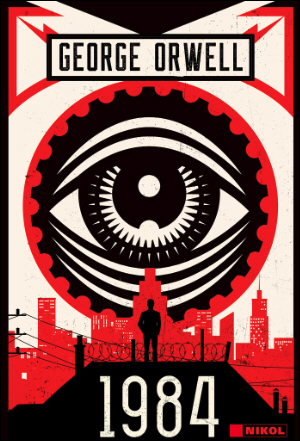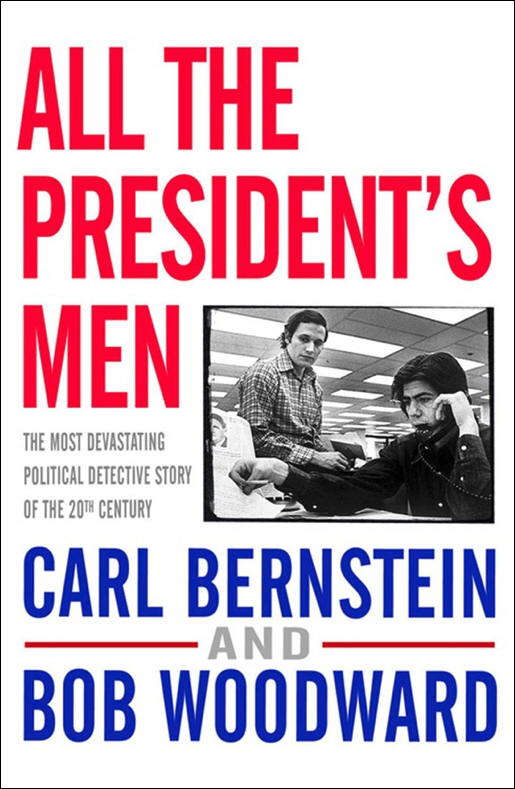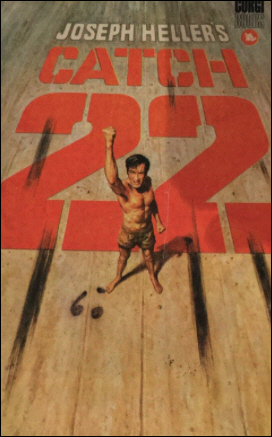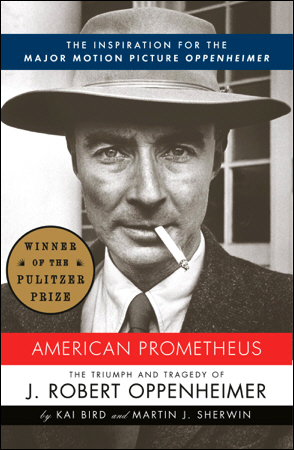What’s in a name?
Many of the world’s bestselling authors owe a lot to their editors…and not just for their wordsmithing skills but for their marketing smarts, too.
By Lawrence Creaghan
1984

|
|
The Last Man in Europe wasn’t commercial enough for George Orwell’s publisher, whose editors suggested they go with 1984, now fully approved by the “Thought Police” as universal shorthand for any dystopian scenario.
All the President’s Men

|
|
The original title of the Bernstein and Woodward book about the Watergate scandal was changed from At this Point in Time to All the President’s Men. Why it worked so well is what Jack Trout and Al Ries wrote about in their ground-breaking book Positioning: The Battle for Your Mind. “The basic approach of positioning is not to create something new and different,” they said, “but to manipulate what’s already up there in the mind, to retie the connections that already exist.” One thing that many people already have in their minds is the “Humpty Dumpty” nursery rhyme. Humpty Dumpty sat on a wall. Humpty Dumpty had a great fall. All the king’s horses and all the king’s men Couldn’t put Humpty together again. In this case, of course, Humpty Dumpty was Richard Nixon; hence All the President’s Men. Bravo!
Gone With the Wind

|
|
Margaret Mitchell’s original title for her story set during the American Civil War was the rather forgettable Tomorrow Is Another Day. The dictionary definition of “gone with the wind” is a “phrase used to describe something that has disappeared, passed, or vanished, permanently or completely” and certainly a title that’s hard to forget. The character originally named ‘Pansy’ was also renamed ‘Scarlett,’ something that everyone...and especially Rhett Butler...should frankly give a damn about.
Catch-22

|
|
Joseph Heller’s editor changed the original title of his blockbuster book from Catch-18 to Catch-22 to avoid any potential confusion with Mila 18, the bestseller written by Leon Uris...and because he thought it was funnier (shades of “23 skidoo” perhaps). The Catch-22 title was so successful and so memorable that it’s become a catchphrase in its own right. You can look it up in the dictionary: “a dilemma or difficult circumstance from which there is no escape because of mutually conflicting or dependent conditions.”
Lord of the Flies

|
|
William Golding’s first novel was to be called Strangers from Within but with a little editorial guidance it became the classic Lord of the Flies. The Dictionnaire Infernal, describes Beelzebub as a being capable of flying, known as the “Lord of the Flyers” or the “The Lord of the Flies.” A diabolically good title for a story about a group of British boys stranded on an uninhabited island and their disastrous attempts at governing themselves.
The Sun Also Rises

|
|
Ernest Hemingway’s original title for his first masterpiece, portraying American and British expatriates travelling along the Camino de Santiago from Paris to the Festival of San Fermín and the running of the bulls in Pamplona, Spain, was mercifully red-flagged by his editors and changed from Fiesta to The Sun Also Rises in the ‘Nick’ of time.
Brideshead Revisited

|
|
Evelyn Waugh’s editors were not inspired by his original title (The House of the Faith) and suggested one that referred back to the mansion in the middle of the English countryside where so much of the story originates and how it revisits (reconsiders) love from different perspectives...and the book was reborn as Brideshead Revisited.
Lolita
Vladimir Nabokov planned to call his most famous work The Kingdom by the Sea before it became the Lolita we know and love. Like the book’s misguided protagonist, Humbert Humbert, Nabokov’s original choice for the title was more than a little gaga.
American Prometheus
Co-authors Kai Bird and Martin J. Sherwin thought that Oppie was the perfect title for their Pulitzer prize-winning biography of J. Robert Oppenheimer, the father of the atomic bomb. Their publisher told them to think again, and with some help they came back with American Prometheus. Back to Trout and Ries…Prometheus also ties into something we have in our minds. Prometheus was, after all, a god of fire in Greek mythology. By adding “American” critical mass was achieved.








